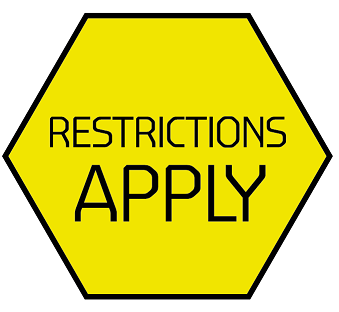
- A restriction is an inhibition imposed by the government or the registrar to prevent fraud, or improper dealing or for any other sufficient cause in the concerned land.
- It is also called the registrar’s caveat.
- Restrictions are normally placed by the registrar during compulsory acquisition or during investigation of a crime or any impropriety related to the acquisition of ownership.
- The Registrar may, either with or without the application of any person interested in the land, lease or charge, and after directing such inquiries to be made and notices to be served and hearing such persons as the Registrar considers fit, make a restriction order prohibiting or restricting dealings with any particular land, lease or charge for the prevention of any fraud or improper dealing in land, lease or charge.
- A restriction may be expressed to endure—
- For a particular period.
- Until the occurrence of a particular event.
- Until the making a further order is made, and may prohibit or restrict all dealings or only or the dealings that do not comply with specified conditions, and the restriction shall be registered in the appropriate register.
- An application for a restriction is to be made in Form LRA 75 Application for a Restriction set out in the Sixth Schedule of the Land Registration (General) Regulations, 2017.
- The Registrar is to make a restriction in any case where it appears that the power of the proprietor to deal with the land, lease or charge is restricted.
- The Registrar is to issue, upon registering a restriction, a notice informing the proprietor of the registration of a restriction in Form LRA 77 Notice of Restriction set out in the Sixth Schedule .
Notice and Effect of Restriction
- The Registrar is to give notice, in writing, of a restriction to the proprietor affected by the restriction.
- It is important to note that an instrument that is inconsistent with a restriction is not to be registered while the restriction is still registered except by order of the court or of the Registrar.
Removal and Variation of Restrictions
- The Registrar may, at any time and on application by any person interested or at the Registrar’s own motion, and after giving the parties affected by the restriction an opportunity of being heard, order that the removal or variation of a restriction.
- Upon the application of a proprietor affected by a restriction, and upon notice to the Registrar, the court may order a restriction to be removed, varied, or other order as it deems fit, and may make an order as to costs.
- A person who wishes to remove or vary a restriction is to lodge an Application to Remove or Vary a Restriction in Form LRA 78 set out in the Sixth Schedule.
- Upon receipt of the application the registrar is to issue a notice of intention to remove or vary a restriction in Form LRA 76.
- The Registrar is to issue, upon registering a variation or removal of a restriction, a notice informing the proprietor of the variation or removal of a restriction in Form LRA 79 set out in the Sixth Schedule.
REFERENCES
Land Registration Act, 2012
Land Registration (General) Regulations, 2017.
Contributors
Robert Muoka – Advocate of the High Court of Kenya
Should you have any questions regarding the information in this article, please do not hesitate to contact us.
Stay in Touch
Useful Links
- Ardhi sasa
- Board OF REGISTRATION OF ARCHITECTS AND QUANTITY SURVEYORS
- ECITIZEN
- Estate Registration Board
- Institute Of Surveyors Of Kenya
- Judiciary E-Filing
- Kenya Law: Home Page
- Kenya Revenue AUTHORITY
- Kenya Institute Of Survey & Mapping
- Kenya Institue of Planners
- Land Fraud Unit
- Law Society Of Kenya
- MINISTRY OF LANDS
- NATIONAL CONSTRUCTION AUTHORITY
- NATIONAL LAND COMMISSION
- National Environment Managment Authority
- NCCG ePayments Portal
- Sheria Online
- State Department of Housing & Urban Planning
- The Judiciary of Kenya – The Independent Custodian of Justice
- Myshambadigital@gmail.com
- FURAHA APARTMENTS, UNIT 5 OFF ARGWINGS KODHEK ROAD
